Introduction
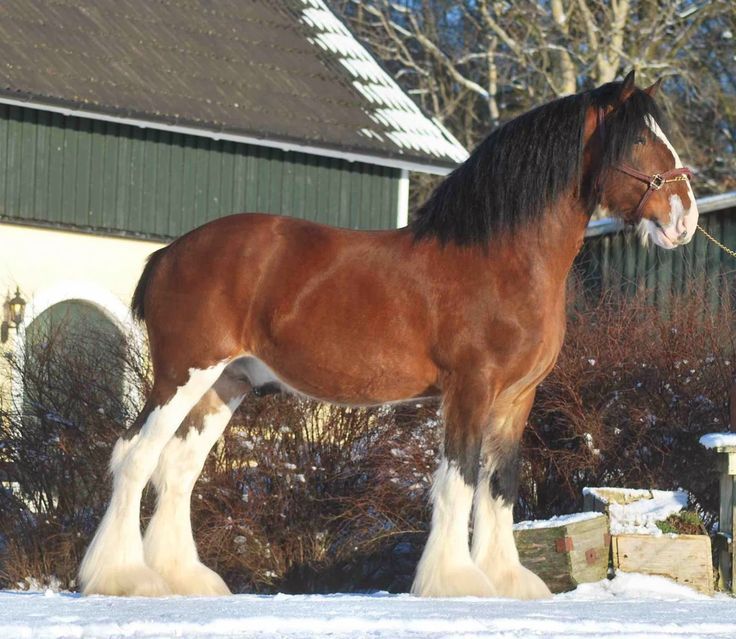
When it comes to majestic equine breeds, the Clydesdale horse stands out with its remarkable history, impressive stature, and gentle nature. In this article, we’ll delve into ten fascinating facts about Clydesdale horses, shedding light on their origin, characteristics, and why they could be the right choice for you.
Clydesdale Horse History and Origin
The story of the Clydesdale horse begins in Scotland. These magnificent horses were initially bred in the Clyde Valley, which gave them their name. Over the centuries, Clydesdales have evolved from working horses to beloved companions, known for their immense strength and striking appearance.
Why Choose Clydesdale Horses?
If you’re considering bringing a Clydesdale horse into your life, you’ll be pleased to know that they are not just visually appealing but also highly versatile. Clydesdales excel in various disciplines, from farming and hauling to equestrian sports and even therapy work.
Average Life of Clydesdale Horses
Clydesdale horses are known for their longevity. On average, these horses can live for 20 to 25 years when well-cared for. Proper nutrition, regular exercise, and routine veterinary care play crucial roles in ensuring a Clydesdale’s longevity.
Best Diet and Nutrition for Clydesdale Horses
Maintaining a balanced diet is essential for Clydesdale horses. These gentle giants require a mix of high-quality forage, grains, and supplements to support their immense size and energy demands. A well-rounded diet is the foundation of their health and vitality.
Best Breeding Month for Clydesdale Horses
Breeding Clydesdale horses requires careful planning. The best time to consider breeding is in the spring, typically from April to June. This timeframe aligns with the natural breeding season for horses and ensures healthy foals.
Common Diseases in Clydesdale Horses
Like all horses, Clydesdales are susceptible to certain diseases. Understanding common ailments such as laminitis and colic is crucial for their well-being. Regular veterinary check-ups and a watchful eye can help prevent and manage these health issues.
Is the Clydesdale Horse Right for You?
While Clydesdales are known for their gentle temperament and versatility, they might not be the right choice for every horse owner. Assess your goals, facilities, and resources to determine if the Clydesdale is a suitable addition to your equine family.
Uses of Clydesdale Horse
Clydesdales can serve various purposes, from traditional farm work to participating in parades and show competitions. Their remarkable strength and elegant appearance make them a popular choice for promotional events, where they symbolize tradition and reliability.
Tips to Keep Clydesdale Horses Happy and Healthy
Ensuring the well-being of Clydesdale horses involves more than just providing food and shelter. Regular grooming, exercise, and social interaction are vital components of their care. Building a strong bond with your Clydesdale will enhance their quality of life.
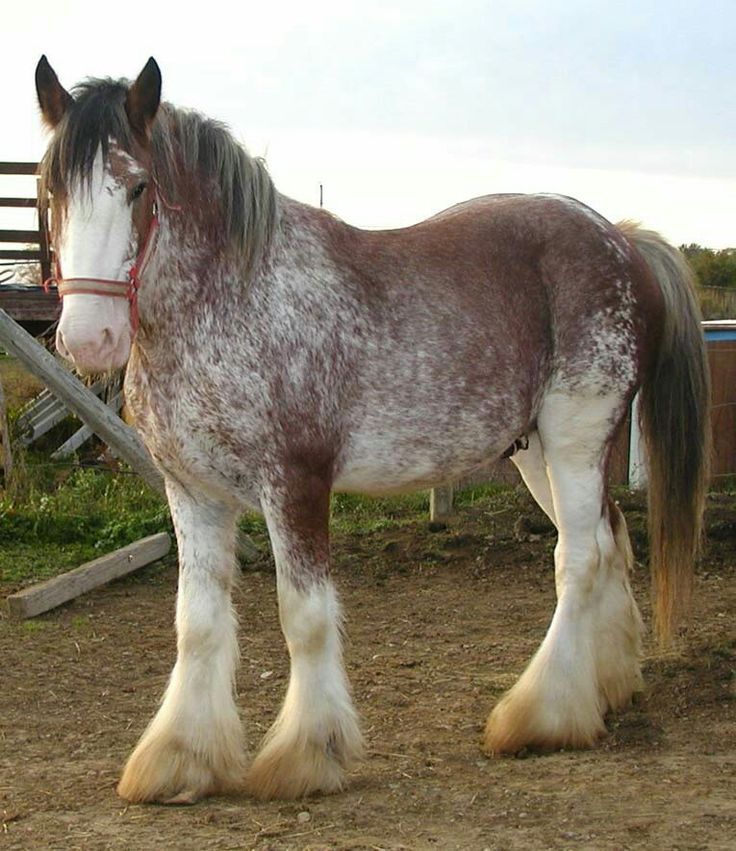
10 Fascinating Facts About Clydesdale Horses
1. Origin and History
Clydesdale horses derive their name from the Clyde Valley in Scotland, where the breed was first developed. They were originally bred for heavy farm and industrial work, owing to their incredible strength and stability. Over time, they’ve become iconic symbols of tradition and reliability.
2. Distinctive Appearance
One of the most striking features of Clydesdale horses is their appearance. They are known for their large size, typically standing between 16 to 18 hands high. Their elegant white stockings and abundant feathering on their lower legs add to their visual appeal.
3. Gentle Giants
Despite their imposing size, Clydesdales are renowned for their gentle and docile nature. They are often considered the gentle giants of the horse world, making them suitable for various purposes, including therapy work and as family pets.
4. Breeding and Genetics
Clydesdales have unique breeding and genetic traits that distinguish them. They are characterized by a strong, muscular build, and their coat colors can range from bay to brown, but they are most commonly recognized as bay with white markings.
5. Iconic Advertising
Clydesdale horses have gained fame through their association with the Anheuser-Busch brewing company. These majestic horses have been featured in the company’s iconic Budweiser commercials for decades, making them symbols of quality and tradition.
6. Remarkable Strength
Clydesdales are exceptionally strong horses, known for their ability to pull heavy loads. In the past, they were used for plowing fields and hauling timber. Their strength and work ethic continue to be valued in agriculture and industry.
7. Versatile Use
While traditionally employed in agriculture and heavy labor, Clydesdale horses have diversified their roles. Today, they excel in various equine disciplines, including carriage driving, dressage, and even as parade horses. Their versatility makes them a popular choice for many equestrians.
8. Lifespan
With proper care and attention, Clydesdale horses can have a long lifespan. On average, they can live for 20 to 25 years, which is longer than many other horse breeds. Routine veterinary care, a balanced diet, and regular exercise contribute to their longevity.
9. Temperament
Clydesdales are known for their even-tempered and friendly disposition. They are often excellent choices for novice horse owners and those seeking a calm and reliable equine companion.
10. Global Recognition
Clydesdale horses have achieved global recognition and admiration. They can be found in many countries around the world, participating in various events, shows, and competitions. Their enduring popularity showcases their universal appeal.
FAQs
Are Clydesdales the biggest horse?
Clydesdales are indeed one of the most substantial horse breeds, celebrated for their imposing size and extraordinary strength. While they are not the absolute largest, they belong to the category of giant horse breeds. Clydesdales typically stand between 16 to 18 hands high (64 to 72 inches or 163 to 183 cm at the withers). Their impressive stature, combined with their unique appearance, has contributed to their global popularity.
Why are Clydesdales so big?
The impressive size of Clydesdales can be attributed to a combination of selective breeding and their historical role as powerful working horses. Over centuries, breeders intentionally developed these horses to possess exceptional strength and stature, resulting in their robust and sizeable frame. Their significant size and muscular build made them indispensable for demanding agricultural and industrial tasks. Clydesdales’ substantial dimensions are a testament to the success of selective breeding and their historical significance in labor.
What is special about Clydesdale horses?
Clydesdale horses hold a distinctive position in the world of equines due to their remarkable combination of characteristics. What sets them apart is their imposing stature, adorned with striking white markings and feathering on their lower legs. Moreover, Clydesdales are renowned for their gentle and calm temperament, which makes them well-suited for various roles, including therapeutic work and serving as family pets. Their adaptability, from traditional labor to contemporary equestrian pursuits, contributes to their unique and beloved status as a breed with a rich history and universal appeal.
Are Clydesdales bigger than other horses?
Clydesdales are indeed larger than many horse breeds, although they are not the largest. The title of the “biggest horse” is often awarded to draft breeds like the Shire horse, which can occasionally surpass Clydesdales in size. However, Clydesdales undeniably belong to the category of giant horse breeds, boasting significantly greater height and weight compared to numerous other horse breeds. Their extraordinary size, coupled with their strength and distinct appearance, establishes them as an iconic and noteworthy equine breed.
Conclusion
Clydesdale horses have captured the hearts of horse enthusiasts worldwide. With their rich history, adaptability, and unique charm, these horses continue to be celebrated for their role in agriculture, entertainment, and companionship. If you’re considering adding a Clydesdale to your equine family, you’ll be embarking on a journey filled with these ten fascinating facts and so much more. Discover the magic of Clydesdale horses and experience their splendor firsthand.
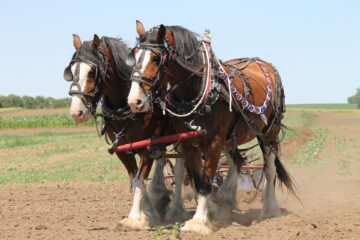
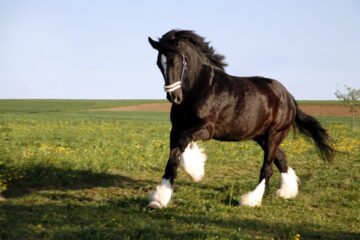
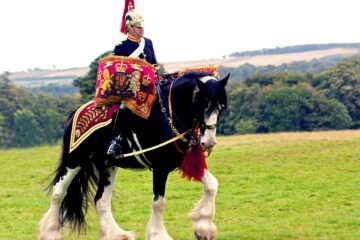
0 Comments